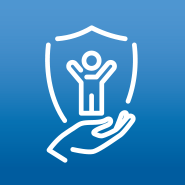There are different routes to becoming a neonatal pharmacist.
First, a degree needs to be completed in pharmacy. This is normally an MPharm in the UK – usually for four years. This is followed by one year of training and once completed, the trainee sits an exam by the General Pharmaceutical Council and if successful can start the registration process as a pharmacist.
Some people may do their training in an NHS setting, others in community or industry/academia. Once working in the NHS, they may end up working in a tertiary hospital, a DGH or a paediatric hospital and will rotate through various areas to gain relevant experience.
Most pharmacists that end up in NICU would have rotated through NICU and usually other paediatric specialties. Regarding training, there will be local training / induction and pharmacists can also attend training sessions provided by the NPPG (Neonatal Paediatric Pharmacist Group). There is no formal training as such. It’s mainly learning on the job and gaining experience and confidence as you progress. Individuals may decide to take on further post-graduate learning by undertaking specific neonatal modules.
To follow is a brief description of the various roles performed by a neonatal pharmacist:
- Attends multidisciplinary ward rounds (ideally if time permits)
- Reviews drug charts, infusion and fluid charts
- Involved in ordering TPN
- Participates in Grand Round meetings and provides updates for the ward in terms of medication related issues and any pharmacy issues
- Participates in Doctors’ induction/teaching and nurse training
- Works as part of an MDT to develop and write guidelines and drug monographs
- Attends neonatal governance meetings and reviews medication incidents
- Reviews expenditure and look at potential CIPs
- Involved in the palivizumab/RSV clinic
- Provides guidance/ advice in relation to medication related queries
- Participate in quality improvement projects
- Involved in supporting clinical trials in neonates (not all may do this)
- Involved in research (depending on capacity)
- Processes discharges for babies and liaises with GPs/ CCGs/ community pharmacies to resolve medication related issues
- Liaises with neonatal/ specialist teams at other hospitals that may be looking after a specific condition
- Works with the palliative care team to organise medication for palliation when required
- Works as part of a network on regional guidelines
International students may be required to do a conversion course for one year.


